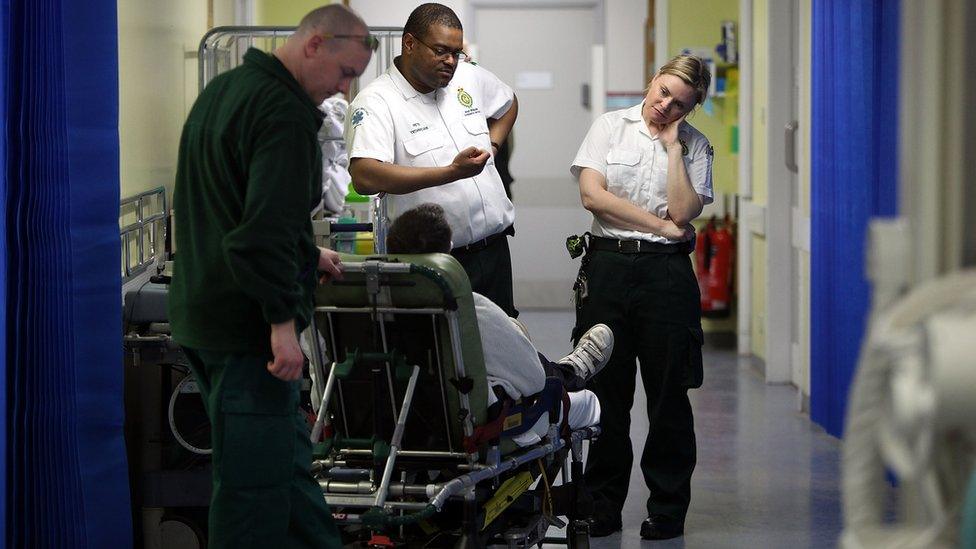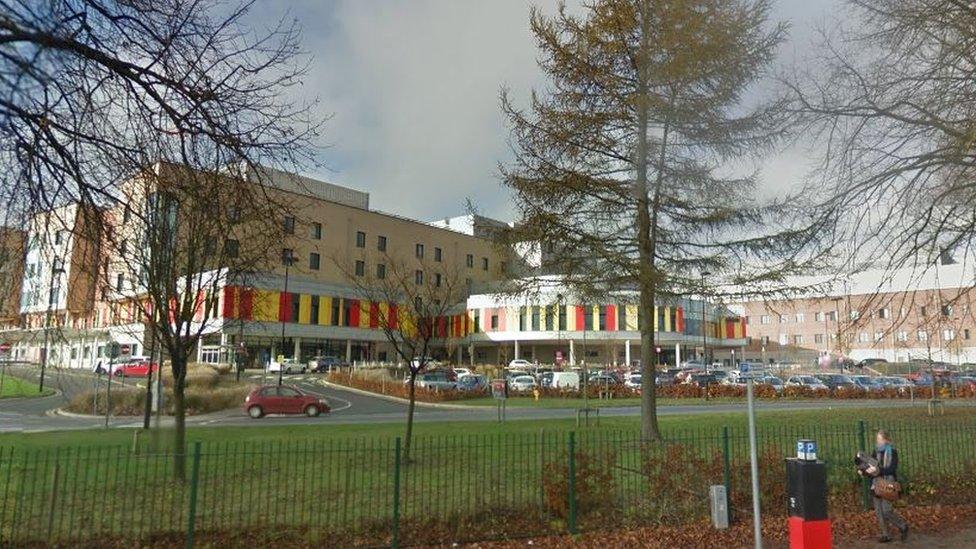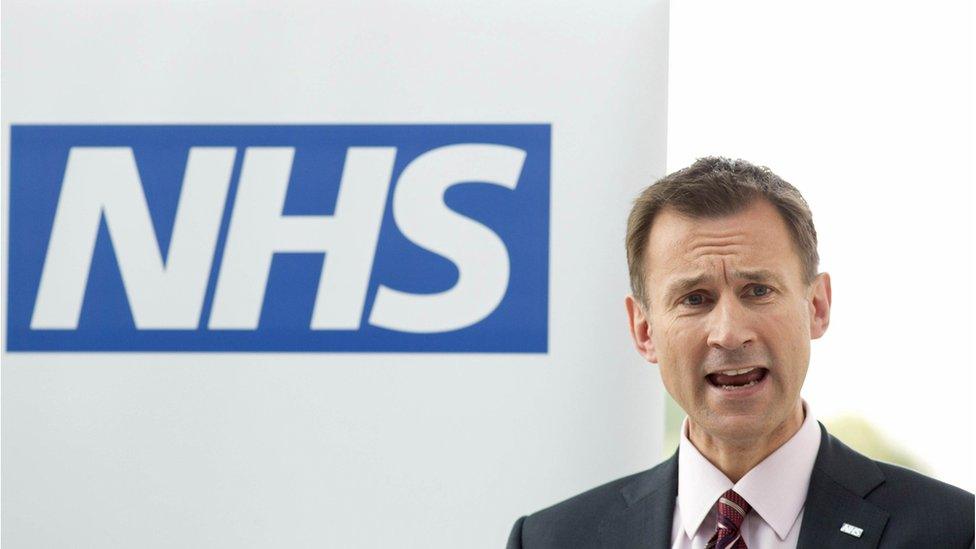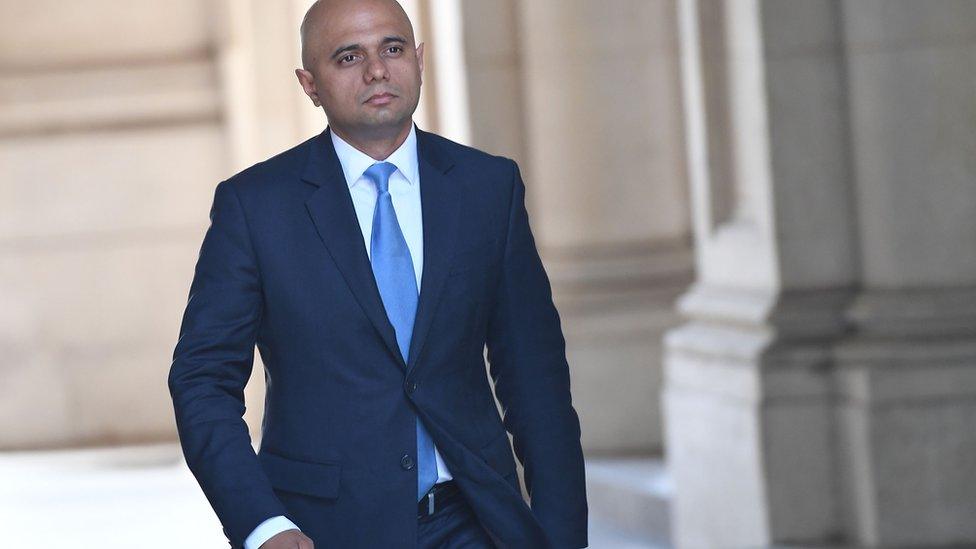Can Midlands hospitals avoid another midwinter crisis?
- Published

Winter time
We have all put our clocks back so they are now ticking down to the darkest, coldest months of the year.
The litany of news stories about patients waiting on trolleys for hours on end in overcrowded accident and emergency departments has become a depressingly familiar theme during one winter after another. Hospitals in our part of the country have often appeared at the wrong end of the league table.
Some of the longest waits in Britain last winter were at the Royal Stoke University Hospital.
So you can imagine the pressure building up there to try to prevent history repeating itself.
They are putting in 45 extra beds.
Elective surgery will be cancelled for two weeks in January in an effort to reduce the risk of bed-blocking.

University Hospitals of North Midlands NHS Trust is preparing for winter
Hospital staff will have their leave capped during the most challenging periods of the winter.
And as if these measures turn out to be insufficient, there are also several contingency plans, just in case.
Perhaps the most surprising of these is nicknamed "Junior Doctors' Conditions".
The changed shifts and working patterns brought in during the hospital doctors' dispute did at least produce some beneficial side effects.
Measures including bringing more consultants into the front-line helped to ease the most congested pinch points.
It's not sustainable long-term because it takes consultants away from important teaching and governance work.
But it might just help hard-pressed hospitals and their patients through the worst.
It's all for the sake of getting hospitals to work more effectively at critical times.
We are constantly reminded by NHS Improvement, who oversee our NHS trusts and foundation trusts, that there is a way to go yet in terms of the delivery of efficient, value for money, health services.

Jeremy Hunt says hospitals need more money allocating in the forthcoming Budget
Money worries
In common with so many of our major hospitals, the Royal Stoke is struggling to under the weight of a gigantic budget deficit.
It has been in financial special measures since March, when the deficit was projected to reach £119m by the year's end.
They have to make savings of £50m so the end-of-year figure should by then be a still-daunting £69m.
How can this be a sustainable way of running a health service?
It's hardly surprising that the Health Secretary Jeremy Hunt did a round of the television studios last weekend, pressing the case for extra funding for the NHS in the Budget in three weeks' time.
The problem for the Chancellor, Philip Hammond, is that the Communities Secretary and Bromsgrove MP Sajid Javid had an equally forthright message on the previous weekend's political talk shows; in his case, in support of the Government's ambitious plans to accelerate house-building.
What's more, there is a steady procession of other big-spending departments, each with its own assortment of more or less deserving cases.

Will Sajid Javid's call for more money to be spent on housing cause problems for Jeremy Hunt?
Mr Hammond simply cannot keep them all happy, especially if he is to maintain the Treasury's commitment to the eradicating the structural deficit.
The Institute for Fiscal Studies pointed out earlier this week that Mr Hammond faces a near-impossible choice between his commitment to prudent economic management on one hand, and on the other, the chorus of demands for increased public spending after years of austerity.
Asked on the BBC Radio Four Today programme what he would do if he were the Chancellor, the IFS's Director, Paul Johnson, said he was very pleased he wasn't in that exalted position himself.
When pressed, he raised the possibility that tax increases could be made more palatable if they were "hypothecated": in other words, that tax payers would be more likely to stomach the increases if they were told it was earmarked for, say, the NHS.
This will be our main talking point in next weekend's Sunday Politics Midlands.
Joining me in the studio will be Robin Morrison, the Chairman of the independent health watchdog Healthwatch Staffordshire.
Also with me will be James Morris, the Conservative MP for Halesowen and Rowley Regis and the Labour MP for West Bromwich West Adrian Bailey.
And I hope you will join us too, in our usual 11:00 slot this Sunday morning, 5 November 2017.